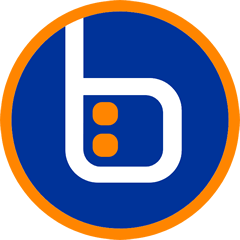Tips and Advice
GET YOUR
CV RIGHT
Providing the correct information on your CV will maximise your chances of landing the right job. It allows us to match you to the most suitable roles, and alert you when new vacancies match your skills and aspirations.
Our ‘CV Do & Don’ts’ provide simple tips that will help to make a huge difference to your job hunt!
do
- Keep it simple – no need for fancy cv templates
- Obvious but often missed – always include your name and contact details at the top
- Include a personal profile – an overview of who you are and what you’re all about
- Briefly outline your experience and employment history, including your biggest achievements
- Include all education and qualifications – take time to include keywords, and tell us what trade cards or certificates you have
- Tell us more about you by including interests and hobbies,
- If in doubt, speak to one of our team!
DONT’S
- Use jargon or password protected templates – a standard word document is good!
- Don’t write war and peace – about 2 pages is the average length of a UK CV
- Forget to include a copy of your trade cards and certificates – we can save these to your record
- Feel obliged to include a photo – this is not required in the UK
- Miss this opportunity to showcase your skills and achievements – first impressions count
- Forget to proof read your CV
- Hesitate to speak to us about crafting the perfect CV..
tips for interview success
Once you have secured an interview, there are a number of steps you can take to ensure, as far as possible, that the interview is a success.
Preparation is Paramount
Finding out about your possible next employer seems like common sense – not only will it help you to decide if it’s the right company for you, it also ensure the interviewer knows you are serious about the role. There are many different sources but the company’s website should be your first port of call.
Prepare a list of suitable questions for the interview. The company’s operation, internal reporting structures and plans are a good starting point.
Prepare answers for commonly occurring questions such as: What do you know about the company? What do you have to offer? Why are you looking for a new position (be careful with this one – try not be too negative about your current employer) what are your strengths? What are you weaknesses? (Never answer “none”)
Check the time and date of the interview, the location of the company and the time it will take you to get there.
Know who you are meeting and what their position is.
Dress smartly to create the right first impression. The golden rule here is always err on the side of caution. If the dress code for their employees is jeans and t-shirts it may not be appropriate to turn up in a business suit, but dressing smartly for the interview will in the majority of cases be appreciated if not expected.
The Start of the Interview
The importance of making a good first impression cannot be overstated.
A good start to an interview is essential. Ensure that you are well presented, punctual and friendly.
A firm handshake and a smile are good openers. Attitude is important. Even if you have reservations about attending, be positive. The position may turn out to be exactly what you want. You can always turn down a position, but it’s far more difficult to retrieve an interview if you fail to give the best of yourself.
Never sit back and expect your experience / qualifications alone to secure employment. Personality is, at least, as important. Be positive, confident, honest and open. Remember to be confident about experience you have gained, but don’t attempt to make out that you have more experience than you really have!
Most importantly, be yourself!
Asking Questions
Prepare your questions well in advance, ensuring they are positive, relevant and knowledgeable. Use this time to clear up any questions you have. Do not ask about the salary, benefits or holidays. These are usually discussed at the second interview, or your consultant will liaise with you.
If you are asked what salary you are looking for, never give a range, as they are likely to offer you the lowest end.
At the end of the Interview
If you are asked if you are interested in the position – unless you are very definitely NOT – always answer yes.
Try to impress on the interviewer that you have enjoyed your meeting and are interested in taking things further. Thank the interviewer for their time and ask when and how you will receive feedback.
Good Luck!

